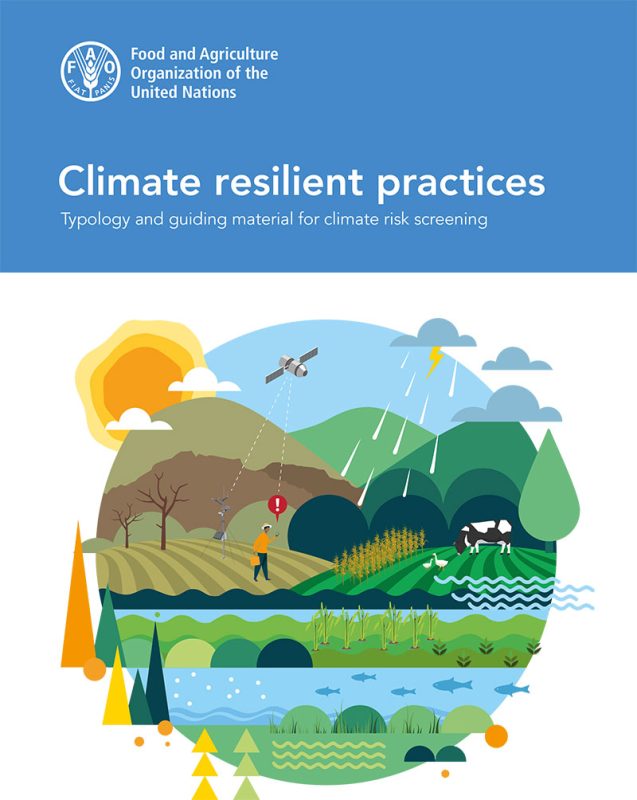FAO Climate Resilient Practices Typology and guiding material for climate risk screening 2021
26/07/2024
DOCUMENT DESCRIPTION
A key element required for sustainable and transformational development in agriculture is
ensuring that investments are informed by robust evidence about past and future climate
risks. Climate resilience is a fundamental concept of climate risk management. In this
context, resilience refers to the ability of an agricultural system to anticipate and prepare
for, as well as adapt to, absorb and recover from the impacts of changes in climate and
extreme weather. Resilience can be enhanced by implementing short and long-term
climate mitigation and adaptation strategies, as well as ensuring transparent and inclusive
participation of multiple actors and stakeholders in decision-making and management
processes. Some hydro-meteorological hazards are slow in their onset, such as changes in
temperature and precipitation resulting in long-term altered temperature, rainfall patterns
and agricultural droughts. On the other hand, some occur much more suddenly, such as
tropical storms and floods. Both require robust risk preparedness informed by the
assessment of climate risk.


